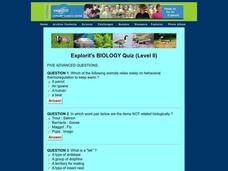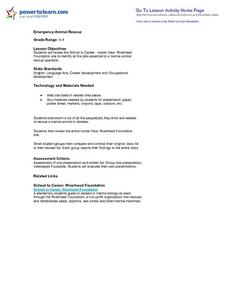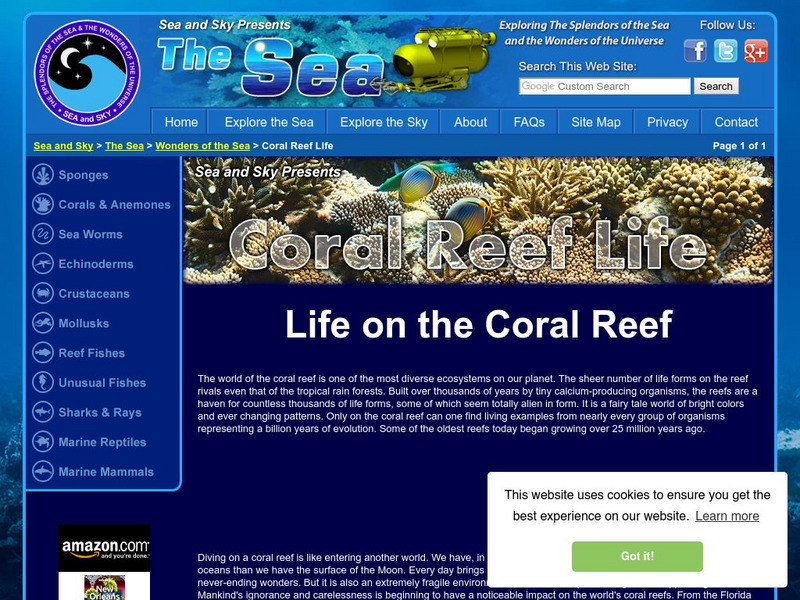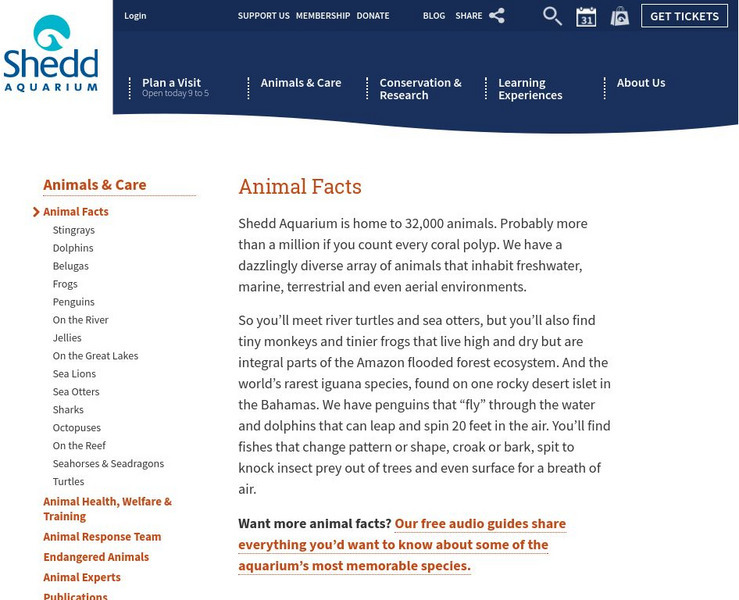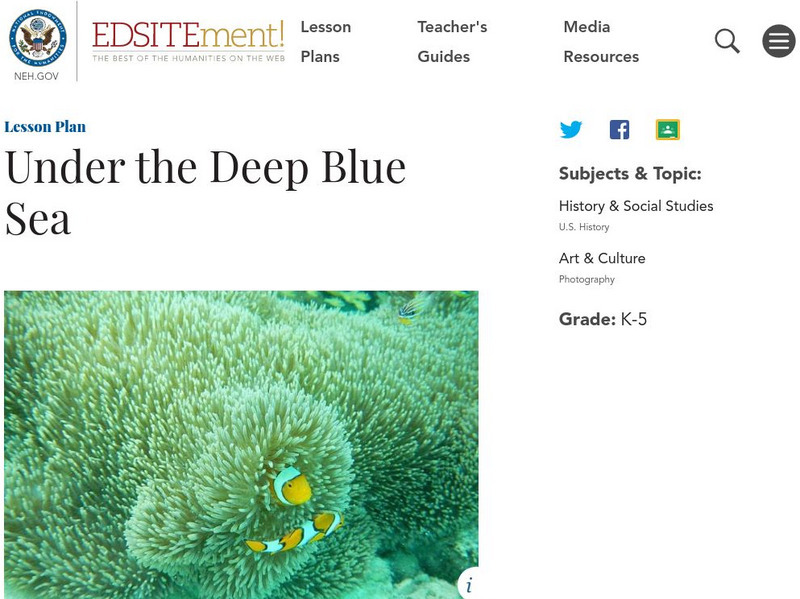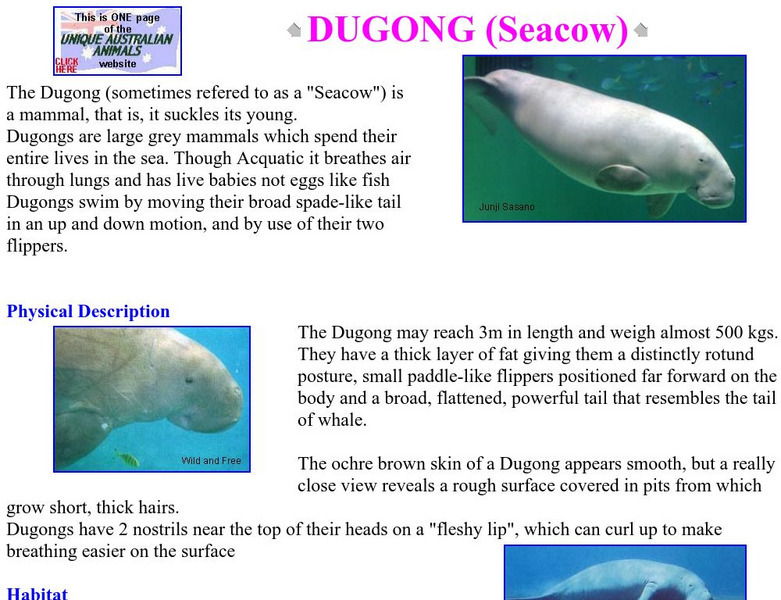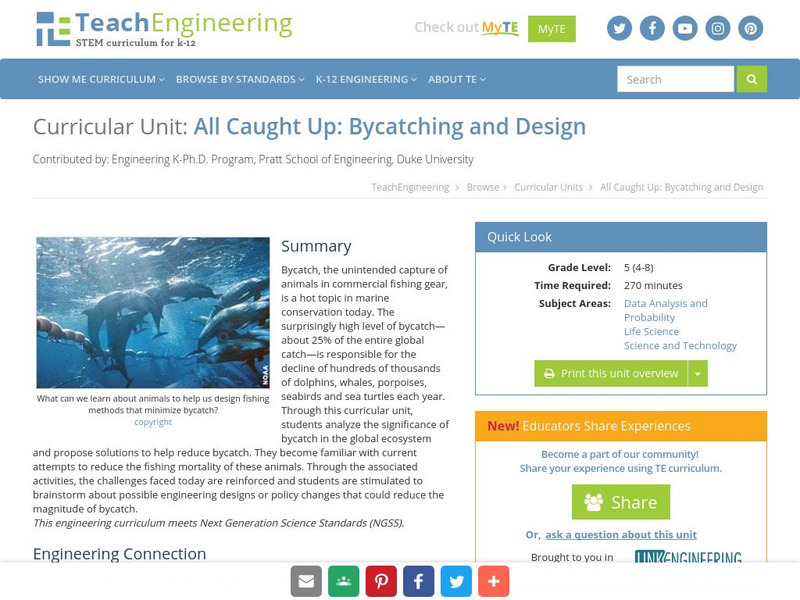Curated OER
TE Lesson: Caught in the Net
Students student the concept of bycatch, the act of unintentionally catching certain living creatures using fishing equipment. They determine the difference between bycatch and target creatures. They discover what species become bycatch...
Curated OER
Stranded along the Coast
Students plot stranding sites onto a map using latitude and longitude as well as compass directions with respect to coastal features. They identify several species of marine animals that might become stranded; distinguish their...
Curated OER
Ocean Animals vs. Humans
Students use critical thinking skills to solve word problems using ratios that allow them to compare humans to ocean animals.
Curated OER
Explorit's Biology Quiz
In this biology worksheet, students complete a five question on-line interactive multiple choice quiz about animal biology. This quiz has more advanced material.
Curated OER
Emergency-Animal Rescue
Learners brainstorm list of people and jobs they think are needed to rescue distressed marine animal, review entire Inside View: Riverhead Foundation site, create revised list, compare and contrast original class list to revised list,...
Curated OER
Picture Dictionary - Quiz 3
In this picture dictionary worksheet, students test their vocabulary skills in a picture dictionary vocabulary worksheet. Students answer 20 exercises.
Curated OER
Short Fin Mako Sharks
In this online quiz worksheet, students answer a set of questions about the short fin Mako shark. Page has a link to submit answers for correction.
Scholastic
Scholastic: Ocean Life: Earthwatch Field Sites (Sea Turtles & Dolphins)
Discover the field sites scientists have visited to study sea turtles and dolphins. Read their reports and view pictures of the turtles and dolphins to learn all about these mammals.
Sea World Parks & Entertainment
Sea World: Bottlenose Dolphins
Outlines the characteristics of the bottlenose dolphin, including classification, habitat, behaviors, and conservation.
Scholastic
Scholastic: Wild Animal Watch Dolphins
An informative site about dolphins by Scholastic. Great links to activities and games, other web links about dolphins and a teacher page.
Society for Science and the Public
Science News for Students: Sleepless at Sea
Can you go for a month without sleeping? Most mammals can't, but scientists have found some marine mammals that do. Find out why some orcas and dolphins don't sleep for weeks at a time.
Other
Sea Sky: Reef Life
The coral reef, its composition and inhabitants are explored here in detail. With additional information about the life that inhabits a coral reef.
Ducksters
Ducksters: Dolphins
Kids learn how dolphins eat, sleep, and live together. Bottlenose dolphins and orcas travel the ocean in pods.
Scholastic
Scholastic Explorers: Ocean Life
This lesson plan explores how human activity has an impact on turtles, sea otters, and dolphins in different parts of the world. Your students will read field reports from the sites and evaluate data that is offered.
Sea World Parks & Entertainment
Sea World Parks & Entertainment: Endangered Species
The site provides a detailed overview of currently endangered species. Content includes a focus on various conservation organizations, endangered species profiles, and more.
Scholastic
Scholastic: Ocean Life
Learn about leatherback turtles and dusky dolphins with the Earthwatch research teams in Costa Rica and New Zealand. Choose which animal you would like to learn more about then read field reports, meet a researcher, become a researcher...
Other
Ocean Oasis: Field Guide
Ocean Oasis is a giant-screen film that depicts Mexico's Sea of Cortes and the Baja California desert. This companion site features much of the information the film has, such as beautiful images of animals, water, and land that have...
Other
Fishin for Facts Library
A comprehensive site that includes a wealth of information on whales, sharks, penguins and squid.
National Center for Ecological Analysis and Synthesis, University of California Santa Barbara
Kids Do Ecology: Marine Mammals
This resource provides information about marine mammals.
National Endowment for the Humanities
Neh: Edsit Ement: Under the Deep Blue Sea (Lesson Plan)
Using language and resource skills to explore the ocean and the life within is what this lesson plan from EDSITEment is all about. The lesson is multi-level and resources and academic content standards are available.
Unique Australian Animals
Unique Australian Animals: Dugong
Unique Australian Animals introduces you to the dugong or sea cow, an mammal that is similar to the manatees found in Florida.
Australian Broadcasting Corporation
Australian Broadcasting Corporation: Walking With Dinosaurs: Fact File: Ophthalmosaurus
Read information about the dolphin-shaped opthalmosaurus, and learn what fossil evidence tells us about this marine dinosaur's hunting, anatomy, and young. View a listing of quick facts about the opthalmosaurus' size and diet, and launch...
TeachEngineering
Teach Engineering: All Caught Up: Bycatching and Design
Bycatch, the unintended capture of animals in commercial fishing gear, is one of the hottest topics in marine conservation today. About 25% of the entire global catch is bycatch. This surprisingly high level of bycatch is responsible for...





